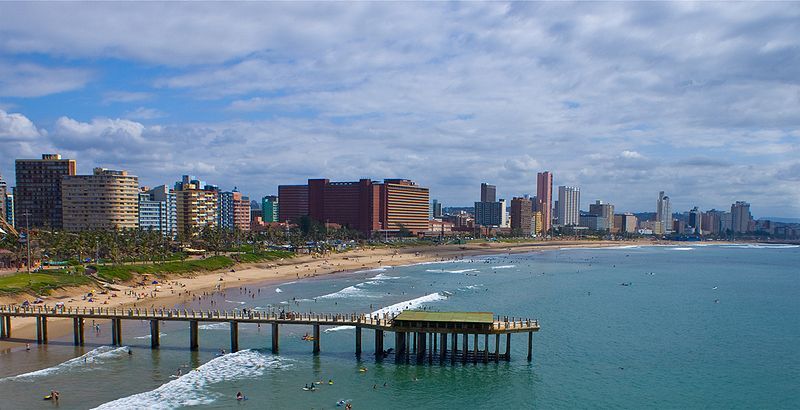COP17 begins in Durban
COP17 begins in Durban today with some 11,810 delegates attending; it will run for two weeks until the 9th December. Developed nations have their commitments to reductions in greenhouse gas emissions end next year; Durban’s aim is to come to a new agreement to deal with the problem.

COP17 begins in Durban today with some 11,810 delegates attending; it will run for two weeks until the 9th December. Developed nations have their commitments to reductions in greenhouse gas emissions end next year; Durban’s aim is to come to a new agreement to deal with the problem. Yesterday, UNFCCC secretary Christiana Figueres said that there were two important aspects to the next fortnight, “The first has to do with a growing momentum for action and the other is the new research and the findings that are sounding alarm bells for urgent action”.
The science is growing beyond doubt, but the momentum and desire for action can be severely questioned. The future of climate talks hangs in the balance at the moment; as the Durban conference begins, nations including India and Brazil are joining the US and Japan in calling for a delay in the process with no talks of binding agreements beginning until 2015.
The talk has enraged small island states and developing countries, which feel have been snubbed by the move. The combination of uncertain economic conditions and rapidly expanding BRIC economies means the climate talks have been caught in a perfect storm of scepticism and self interest. Just a few weeks ago it was announced that emissions of carbon dioxide had a record rise of six per cent as well as record levels of carbon in the atmosphere.
Delaying any progress on climate talks by four years will effectively make a two degree target impossible to reach. This will make life very difficult for small island states, which are already facing rising sea levels and changing rain fall patterns interfering with their water table, as was evidenced in the South Pacific very recently.
It has been argued by climate scientists like Mike Hulme that the two degree target is largely arbitrary and even steeper reductions may be required to prevent irreversible effects like coral bleaching. Policy makers however, are more inclined to see it as the minimum possible reduction, as the negotiation time and lack of willing from some countries make swift rapid cuts in emissions impossible. It now looks more and more likely that the two degree target will be missed and it will now become a question of just how much climate change we want to deal with.
